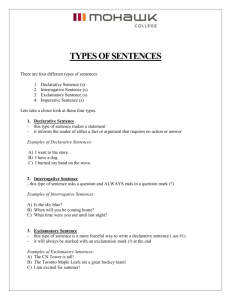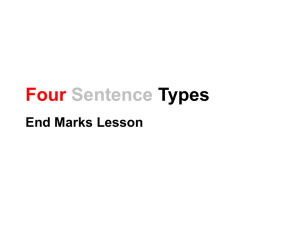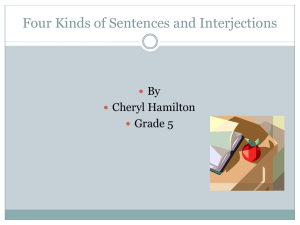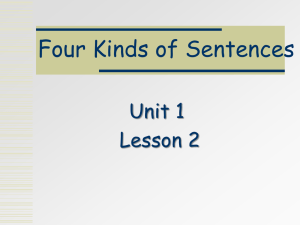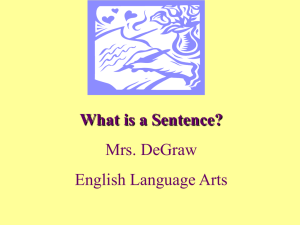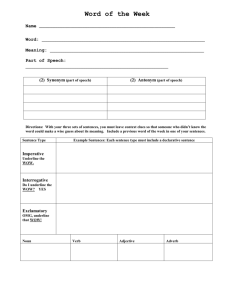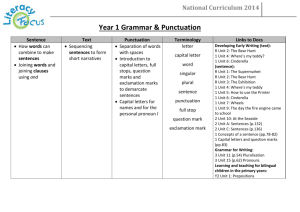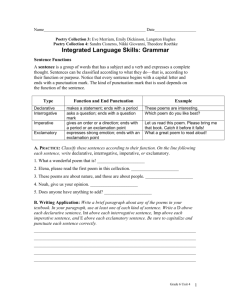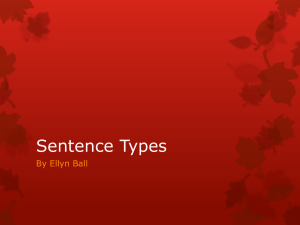File
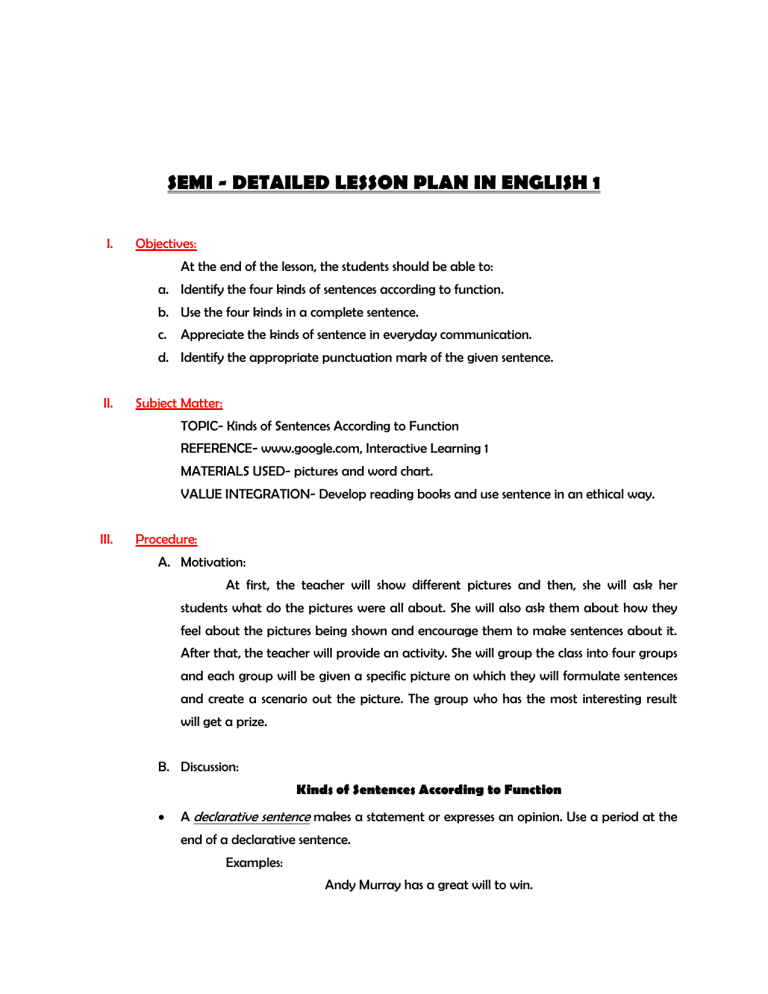
SEMI - DETAILED LESSON PLAN IN ENGLISH 1
I.
Objectives:
At the end of the lesson, the students should be able to: a.
Identify the four kinds of sentences according to function. b.
Use the four kinds in a complete sentence. c.
Appreciate the kinds of sentence in everyday communication. d.
Identify the appropriate punctuation mark of the given sentence.
II.
Subject Matter:
TOPIC- Kinds of Sentences According to Function
REFERENCE- www.google.com, Interactive Learning 1
MATERIALS USED- pictures and word chart.
VALUE INTEGRATION- Develop reading books and use sentence in an ethical way.
III.
Procedure:
A.
Motivation:
At first, the teacher will show different pictures and then, she will ask her students what do the pictures were all about. She will also ask them about how they feel about the pictures being shown and encourage them to make sentences about it.
After that, the teacher will provide an activity. She will group the class into four groups and each group will be given a specific picture on which they will formulate sentences and create a scenario out the picture. The group who has the most interesting result will get a prize.
B.
Discussion:
Kinds of Sentences According to Function
A
declarative sentence
makes a statement or expresses an opinion. Use a period at the end of a declarative sentence.
Examples:
Andy Murray has a great will to win.
The commentator laughed at his own mistake.
An
interrogative sentence
asks a question and ends with a question mark.
Examples:
Are you using the saw today, Mitch?
May the other people come along with us?
An
exclamatory sentence
expresses strong feeling and ends with an exclamation mark.
Examples:
This is just the way to do it!
That is great news!
An
imperative sentence
gives a command (strong emotion) or makes a request (mild emotion). Use an exclamation after the imperative sentence that contains a strong emotion, and a period after one that contains a mild emotion.
Example:
Stop that foolish talk now!
Please take the empty plate away now, Ira.
C.
Generalization:
The teacher will ask the students to give examples of the different kinds of sentence.
D.
Application:
Write down the type of each sentence. There are no end punctuation on these sentences because that may give you the answer. Decide by the function of the sentence and mark down the end punctuation.
1. Are you aware of the appointment tomorrow
2. Eat your supper
3. Oh, what a beautiful morning
4. Today is my birthday
5. What gifts did you receive for your birthday
6. Pay the bill
7. Shh, don't make any noise
8. Have you finished your homework
9. Debby, turn off the light
10. Brian participated in the baseball tournament
IV.
Evaluation:
Direction: Knowing a sentence's design by purpose is helpful. Each of these sentences is either a declarative (DEC), an interrogative (INT), an exclamatory (EXC), or an imperative (IMP) one.
On a ¼ sheet of paper, write the appropriate three-letter combination next to its corresponding type of sentence. Each type of sentence appears five times.
1.
____ Have you read this newspaper article?
2.
____ We are late for the meeting.
3.
____ Stop that right now!
4.
____ Remember to watch your step as you leave the room.
5.
____ Are the packages here yet?
6.
____ Professor Franklin said that the situation would improve.
7.
____ Leave those old plates in the closet.
8.
____ That dessert was awesome!
9.
____ Painting is a relaxing hobby.
10.
____ These are the best seats in the stadium!
V.
Assignment:
On a short coupon bond, write a composition about a place relevant to your life.
Include the kinds of Sentences according to its Function.
